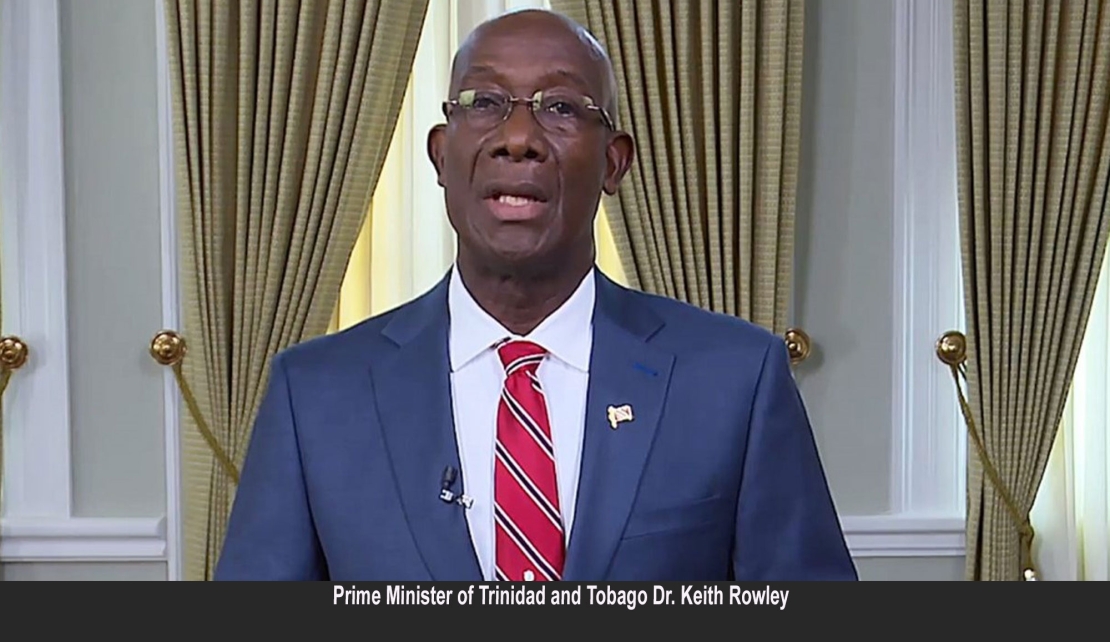GUYANA | Rowley proposes Caribbean Ships to transport Agricultural Produce across the Region

GEORGETOWN, Guyana, May 20, 2022 - Demerara Waves - Trinidad and Tobago’s Prime Minister Keith Rowley on Thursday appealed to international players to finance the purchase of cargo and passenger ships to guarantee cheap transportation of agricultural produce across the Caribbean Community (CARICOM).
“I gather that there are international supporters at this conference and I say here today, if you really want to help CARICOM to do what we are saying we could do here for the good reasons advanced, one of the best things that you could do is to help the team of governments of the region to fund and have operating within the CARICOM region, vessels of that nature so as to bring our people together to travel by sea in an affordable way,” he said.

President Irfaan Ali had said that a Request for Proposals for the financing, management and operation of a logistics framework to create that sea-bridge within CARICOM would have been launched within one month, but so far there has been no further word.
CARICOM has set itself a target of reducing CARICOM’s food import bill by 25 percent by 2025.
Antigua and Barbuda’s Prime Minister Gaston Browne, noting that the “most important” constraint to regional agriculture is “inadequate transport”, recommended there be a system of shared benefit and shared burden for a regional air and sea transportation system.
“There is a tendency in this region in which we have some free riders. Everyone wants transportation but no one wants to pay for it,” he said. Antigua and Barbuda has been struggling to keep LIAT airline operational on sone routes especially since Barbados, and St Vincent and the Grenadines pulled out as shareholders saying it was too expensive for them to continue pumping money into that loss-making carrier.
Noting that it is easier to ship commodities from Miami than within CARICOM, he emphasised the need to fix the transportation constraint. “The regional approach is necessary to increase food production in all of our territories but it is not sufficient to produce more food if we fail to establish the means to transport and distribute it. Let us not fool ourselves, if we do not have adequate transportation, then all our efforts will be in vain,” he said.
Mr. Browne said that CARICOM was now suffering because of its failure to implement the original 2005 Jagdeo Initiative to increase food production and availability across the Caribbean failed to get off the ground and over the last 17 years we have suffered for our inaction” because of poor coordination of the work programmes of the several agriculture production agencies in the Caribbean, limited access to commercially available finance because of inadequate bankable projects.
In 2005, CARICOM’s food import bill was US$1.8 billion but now it is estimated to be about US$6 billion.
Barbados’ Prime Minister Mia Mottley added that Caribbean peoples need regular, cheap air transport with an emphasis on the movement of cargo to subsidise passenger traffic. “In this moment when maritime transport is at its greatest challenge, we have to recognise that the bridge to resuscitating Caribbean air transport may well be having regional air cargo moving to help offset to moving our people,” she said.
Dating back to the 1960s – Guyana’s founding fathers- Cheddi Jagan and Forbes Burnham- had planted and fertilised the idea of Guyana becoming the Caribbean’s food basket.
